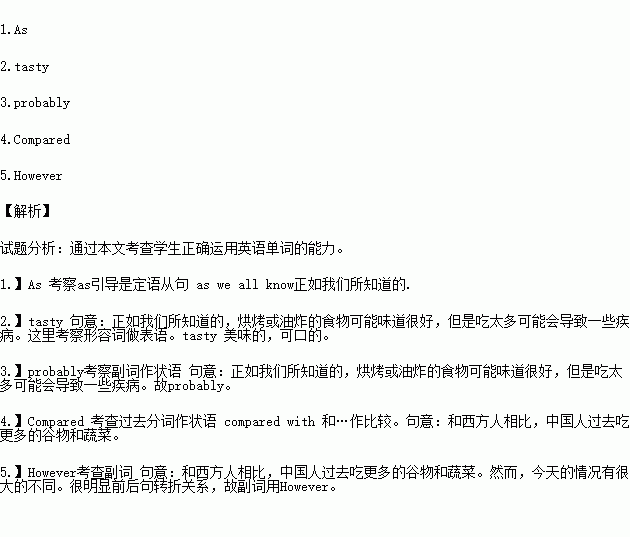题目内容
阅读下面材料,在空白处填上适当的内容(一个单词)或括号内单词的正确形式。将答案写在答题卡的相应位置。
We are what we eat because what we eat every day has a great impact on our health. Therefore, we should make every effort to change our bad eating habits. 1._______ we all know, baked or fried foods may be 2._______ (taste), but eating too much of them will 3._____(probable) result in some illnesses. Moreover, some food that costs us a great deal of money and is not healthy is junk food.
4._______ (compare) with people in the West, Chinese people used to eat more grain and vegetables. 5.________, things are quite different now. With the rapid economic growth, we are now also eating unhealthy food. We must keep it in mind that the food we choose affects our health.
练习册系列答案
 金钥匙试卷系列答案
金钥匙试卷系列答案
相关题目

